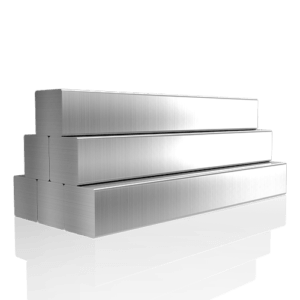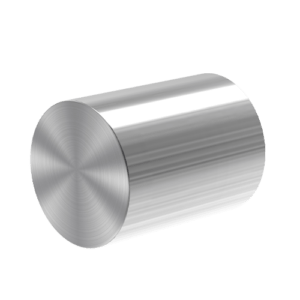Welcome to My Blog!
Before we dive into the content, I’d love for you to join me on my social media platforms where I share more insights, engage with the community, and post updates. Here’s how you can connect with me:
Facebook:https://www.facebook.com/profile.php?id=100090063158454
Now, let’s get started on our journey together. I hope you find the content here insightful, engaging, and valuable.
Introduction

In the rapidly evolving world of manufacturing, material selection plays a pivotal role in determining the quality, durability, and performance of products. Among the various materials available, stainless steel remains a popular choice due to its exceptional properties. Specifically, Qilu Stainless Steel 420 has emerged as a significant player in modern manufacturing processes. This article delves into the unique attributes of Qilu Stainless Steel 420, exploring its applications, benefits, and impact on contemporary manufacturing.
Understanding Qilu Stainless Steel 420
Qilu Stainless Steel 420 is a type of martensitic stainless steel known for its high strength and corrosion resistance. Manufactured by Qilu Steel, a leading producer in the industry, this material has gained recognition for its reliability and performance. To fully grasp its role, it’s essential to understand the characteristics that set Stainless Steel 420 apart from other stainless steel grades.
Composition and Properties
Stainless Steel 420 is characterized by its composition and unique properties. Here’s a detailed breakdown:
| Element | Percentage |
|---|---|
| Carbon (C) | 0.15% – 0.40% |
| Chromium (Cr) | 12.0% – 14.0% |
| Manganese (Mn) | 0.50% – 1.00% |
| Silicon (Si) | 1.00% max |
| Phosphorus (P) | 0.04% max |
| Sulfur (S) | 0.03% max |
The high chromium content in Qilu Stainless Steel 420 provides excellent corrosion resistance, while the carbon content contributes to its hardness and strength. This blend of elements makes it ideal for various industrial applications.
Mechanical Properties
Qilu Stainless Steel 420 offers a range of mechanical properties that are crucial for manufacturing:
- Hardness: 50 – 55 HRC (Rockwell Hardness Scale)
- Tensile Strength: 700 MPa
- Yield Strength: 500 MPa
- Elongation: 15% in 50 mm
These properties ensure that Qilu Stainless Steel 420 maintains its structural integrity under stress and is resistant to wear and deformation.
Applications of Qilu Stainless Steel 420
Stainless Steel 420 is versatile and finds applications in various industries due to its unique properties. Some key areas include:
Automotive Industry
In the automotive sector, Stainless Steel 420 is used for manufacturing components that require high strength and durability. Examples include:
- Engine Parts: Valves, pistons, and camshafts.
- Transmission Components: Gears and shafts.
The steel’s resistance to corrosion and high wear resistance makes it ideal for these high-stress applications.
Aerospace Industry
The aerospace industry demands materials that can withstand extreme conditions. Stainless Steel 420 is used in:
- Landing Gear: High-strength components that endure significant stress during landings.
- Engine Components: Parts that must resist high temperatures and corrosive environments.
Its ability to maintain performance under such conditions is crucial for safety and efficiency in aerospace applications.
Medical Equipment
In the medical field, Qilu Stainless Steel 420 is utilized for:
- Surgical Instruments: Scalpel blades, needle holders, and forceps.
- Dental Tools: Instruments that require sharpness and precision.
The steel’s hardness and corrosion resistance ensure the reliability and longevity of medical instruments.
Industrial Tools
Qilu Stainless Steel 420 is also prevalent in the manufacturing of industrial tools and machinery:
- Cutting Tools: Drill bits, saw blades, and punches.
- Fasteners: Screws, nuts, and bolts.
The high wear resistance and ability to maintain sharp edges make it suitable for these demanding applications.
Benefits of Using Qilu Stainless Steel 420
Choosing Qilu Stainless Steel 420 offers several benefits:
Durability and Strength
Stainless Steel 420’s high tensile and yield strength make it exceptionally durable. It can withstand significant mechanical stress without deforming, ensuring the longevity of components made from this material.
Corrosion Resistance
The chromium content in Qilu Stainless Steel 420 provides excellent resistance to oxidation and corrosion. This property is particularly valuable in environments exposed to moisture and chemicals.
Machinability and Hardenability
Despite its high strength, Stainless Steel 420 is relatively easy to machine and harden. This makes it suitable for precision manufacturing processes where tight tolerances are required.
Manufacturing Process
The production of Qilu Stainless Steel 420 involves several key steps:
- Melting: Raw materials are melted in an electric arc furnace to produce molten stainless steel.
- Casting: The molten steel is cast into billets or blooms.
- Hot Rolling: The billets are hot-rolled into desired shapes and sizes.
- Annealing: The rolled steel is annealed to relieve internal stresses and improve machinability.
- Heat Treatment: The steel undergoes heat treatment to achieve the desired hardness and mechanical properties.
These steps ensure that Qilu Stainless Steel 420 meets the rigorous standards required for modern manufacturing applications.
Future Trends and Innovations

The role of Qilu Stainless Steel 420 in manufacturing is expected to evolve with advancements in technology and material science. Future trends may include:
Enhanced Alloy Formulations
Innovations in alloy formulations could further improve the performance of Stainless Steel 420, making it even more versatile for specialized applications.
Sustainable Manufacturing Practices
As sustainability becomes increasingly important, there will likely be a focus on developing more eco-friendly manufacturing processes and recycling methods for stainless steel.
Advanced Coatings and Treatments
New coatings and surface treatments may enhance the corrosion resistance and wear properties of Qilu Stainless Steel 420, expanding its potential applications.
Conclusion
Qilu Stainless Steel 420 plays a crucial role in modern manufacturing due to its exceptional strength, durability, and corrosion resistance. Its applications span various industries, from automotive and aerospace to medical and industrial tools. As technology advances, the material’s capabilities will likely expand, continuing to meet the evolving demands of modern manufacturing.
FAQ
What are the key properties of Qilu Stainless Steel 420?
Qilu Stainless Steel 420 is known for its high tensile strength, excellent corrosion resistance, and good machinability. It has a hardness range of 50 – 55 HRC and a tensile strength of 700 MPa.
In which industries is Stainless Steel 420 commonly used?
It is commonly used in the automotive, aerospace, medical, and industrial tool industries due to its durability, wear resistance, and ability to maintain sharp edges.
How does Qilu Stainless Steel 420 compare to other stainless steel grades?
Qilu Stainless Steel 420 is a martensitic stainless steel, which offers a combination of high strength and corrosion resistance. It differs from austenitic grades like 304 or 316 in terms of hardness and wear resistance.
What are the common applications of Stainless Steel 420?
Common applications include automotive engine parts, aerospace components, surgical instruments, and industrial cutting tools.
How is Qilu Stainless Steel 420 manufactured?
The manufacturing process involves melting, casting, hot rolling, annealing, and heat treatment to achieve the desired properties and specifications.
